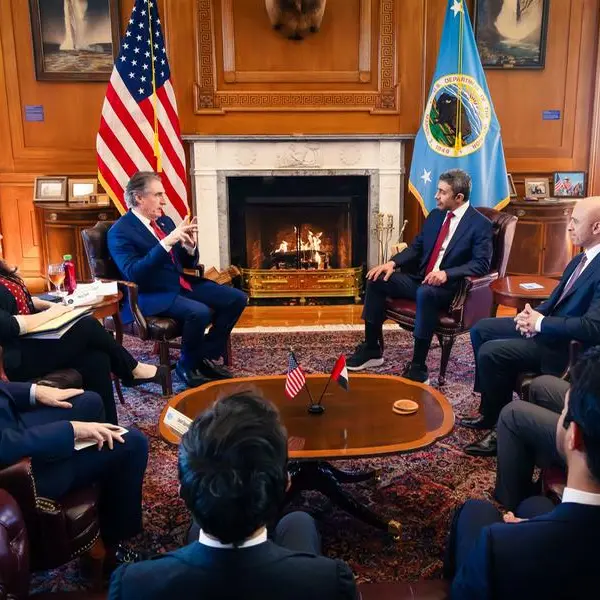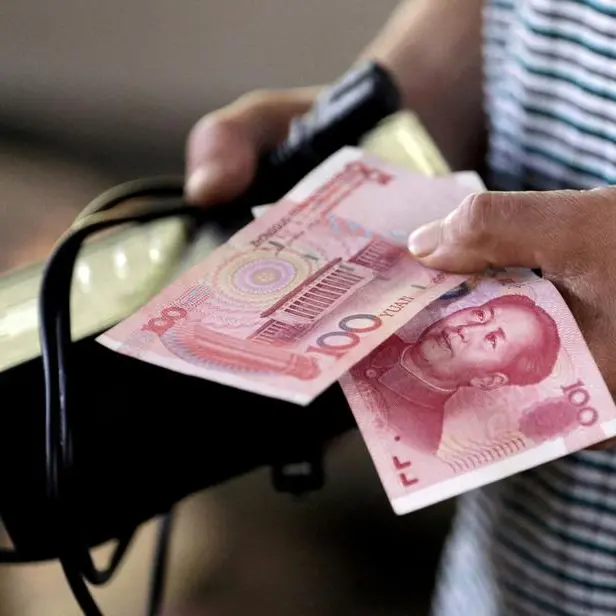PHOTO
Northern Irish politics, never dull, has been complicated by the resignation of the First Minister Paul Givan, of the Democratic Unionist Party, and the automatic ejection from office of the deputy First Minister Michelle O’Neill, of Sinn Féin.
Sinn Féin claims that this development presages a major political crisis and has called for the elections to the Northern Ireland Assembly at Stormont to be brought forward from May.
Meanwhile, an order made by the DUP agriculture minister, Edwin Poots, that halted the internal UK border checks between Great Britain and Northern Ireland in protest at burdens of the Northern Ireland Protocol, was suspended by the High Court.
The DUP contends that this internal border breaches the agreement signed in 2020 by all the Northern Ireland parties, the UK and Irish governments, and lauded in the USA. A key part of the deal that brought back power sharing after three years was that Northern Ireland’s place in the UK internal market would be protected. The DUP have said they will not reinstate their First Minister for as long as this agreement is in breach.
Meanwhile Lord Frost, Britain’s chief negotiator with the EU, earlier resigned from government and has been replaced by the Foreign Secretary, Liz Truss.
As negotiations continue, Prime Minister Boris Johnson was quoted by the DUP leader, Sir Jeffrey Donaldson, as having given the prospect of an agreement being reached with the EU in the next few weeks a 30 per cent chance of coming to fruition. According to Donaldson, Johnson demurred when asked if he would take unilateral action if no movement was made. Publicly, however, the government in London maintains that to protect peace and stability in Northern Ireland, “nothing is off the table.”
All of these things suggest chaos and confusion. Outside observers might be tempted to worry that a negotiated agreement to move beyond the protocol is unlikely. But this is not inevitable.
Even with Northern Ireland in a state of political disarray, things proceed.
Reforms brought forward by the Northern Ireland Secretary of State Brandon Lewis, and passed by the UK Parliament last night, will improve longer term political stability by maintaining some continuity of local government in Northern Ireland, whereas previously power sharing would have automatically collapsed and an early election would have been inevitable.
So government in Northern Ireland will not suffer a total break in continuity while the current political drama is being resolved local.
Continuity is preserved in negotiations too, with Truss largely sticking to Frost’s line. Some EU sources are critical of this, claiming it is overly rigid. But it signals continuity and straightforwardness from the UK negotiators, and that the path previously followed in negotiations remains available.
Intensive negotiations with the EU continue. Truss hopes to reach an agreement on the protocol before the end of February. EU sources have briefed friendly newspapers that they remain skeptical of the British approach, but slowly a consensus is emerging on customs checks and the law. The question in the minds of many is whether a full consensus can be achieved in time for the scheduled May elections.
Maros Sefcovic, the EU’s Brexit commissioner, believes that Britain will not trigger Article 16 of the protocol, which unilaterally terminates the arrangement, a sign that agreement on moving past the dictates of the protocol is possible. But he also knows that, now more than ever, any deal on the Protocol must satisfy all sections of the community in Northern Ireland, as diplomats and politicians in London have been arguing for some time.
This agreement is internationally desirable and sought by many. Secretary Lewis will be in Washington on Wednesday to meet senior US officials over the protocol. Lewis’ shuttle diplomacy has shown his determination to reach an accord.
Those in Washington who have followed Northern Ireland’s long road to peace closely will want to help Lewis’ efforts.
Transcending the protocol remains of the utmost importance. Barriers to trade imperil prosperity and day-to-day business. Those temporary delays to full implementation of the protocol, which have been made largely on the fly, responsive to momentary crises, and are not designed to exist in the longer term. For Northern Ireland to prosper, and for political stability to be retained, the protocol must be succeeded by a less suffocating arrangement. But with elections on the horizon, time is running out to safeguard the gains of the Good Friday Agreement. A deal must be reached that works for all communities in Northern Ireland so that power sharing can be fully restored by the elections this year.
It is in the interests of all sides to reach an agreement, and much progress has been made since Britain left the EU in 2020. A new system is taking shape, slowly being laid down after years of negotiations. Politics remains contentious and heartfelt. Individual crises flare up and must be dealt with. But negations grind doggedly on. A solution is still close at hand.
- Dr. Azeem Ibrahim is the Director of Special Initiatives at the Newlines Institute for Strategy and Policy in Washington D.C. and author of “The Rohingyas: Inside Myanmar’s Genocide” (Hurst, 2017). Twitter: @AzeemIbrahim
Copyright: Arab News © 2022 All rights reserved. Provided by SyndiGate Media Inc. (Syndigate.info).





















